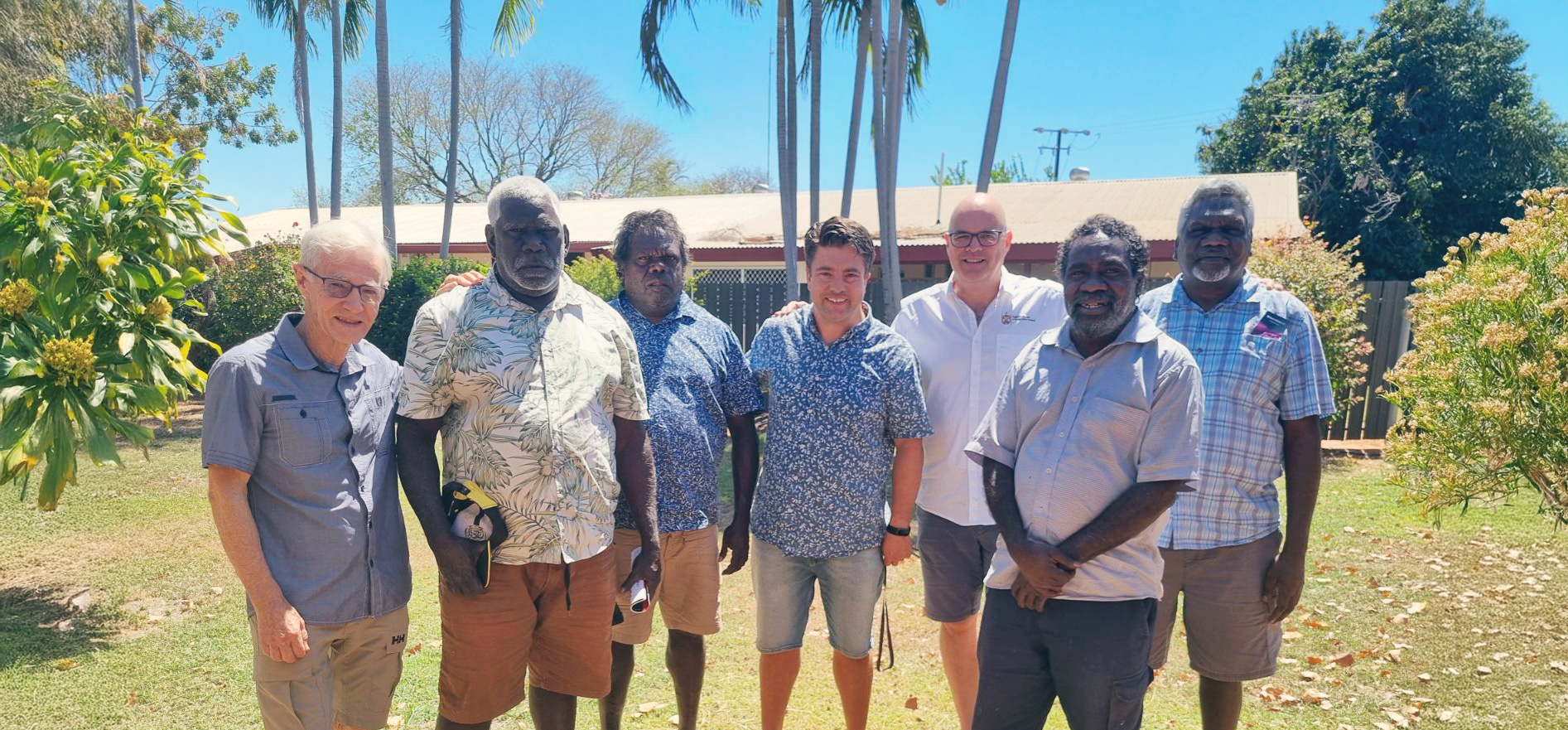The politeness factor: relatively rude mission agents
Ex-CMS missionary Greg Anderson is now bishop of the Northern Territory. In this, the third of six articles on humility in mission, Greg writes about some of the difficulties associated with politeness and cultural norms, and dealing with these as a Christian and as a missionary.
Article One is Skin-deep mission: how Western missionaries are perceived.
Article Two is The Money Factor: Relatively Rich Mission Agents.
You are currently viewing Article Three is—The Politeness Factor: Relatively Rude Mission Agents.
Article Four is The Lifestyle Factor: Relatively Free Mission Agents.
Article Five is The Diversity Factor: Relating to a Range of People.
Article Six is When Difference gets me down.
There is a stereotype in Western society that rich people throw their weight around, are self-important, and treat people less well off with contempt and rudeness. I don’t think it’s true of any of the rich people I’ve ever met, but it’s enough of a default-setting perception that it works as, for example, a basis for comedy (such as the Howells on Gilligan’s Island). It resonates in our consciousness as an expectation, even if the expectation is rarely met. My previous two articles have reflected on the relative wealth of many missionaries compared with their location; in this one I want to suggest that it would be a shame if we inadvertently lent weight to perceptions of privilege by acting rudely.
Language and politeness
In cross-cultural situations, we often focus on the importance of language learning, but there is a whole other dimension around language which is as important as (or perhaps more important than) the words themselves. This includes politeness. We could summarise politeness as relating well to people; it will include what we say, but also how, when, where, why and to whom we say it. The Bible has a lot to say about treating people well. Although the word ‘politeness’ doesn’t appear in most of the English versions (but see Genesis 37:4 and Titus 3:2 in some of the newer easier versions), the concept is expressed in various ways, including 1 Peter 3:15-16’s ‘gentleness and respect’.
Honking your own horn
The challenge is that the way we express gentleness and respect in our own culture may differ from how other cultures express them. In Arnhem Land communities that I visit, a perfectly normal and polite way of making contact with someone is to drive up to their fence and blast the car horn. I find this so difficult to do, because I have been schooled that such behaviour is rude. A short couple of bips I can come at, but the long loud blast is for me a huge hurdle.
And yet, in an environment where there is widespread deafness and a lot of competing noise in people’s houses, it is actually a considerate way to let the household know I’m there. The next step, if this works, might be getting out of the car and standing or sitting outside, hopefully in shade, with whomever I’m visiting. What wouldn’t happen, in my context, is an invitation into the person’s house, and if the person is eating, it would be very unlikely for me to be offered food. In my Western cultural background, this seems rude, but it is perfectly normal for Arnhem Land Christians.
Calling people names
I was schooled in Arnhem Land cultural mores in the mid-80s, and learnt early that working out what to call people (usually through the kinship network) was the first step in polite interaction. It demonstrated connection and respect. It seemed natural in the first class that I taught at Nungalinya College, the Aboriginal church leader college in Darwin, that I would ask what each student wanted me to call them. They were surprised (they said) because nobody had asked them this before. Staff had just assumed that using given names was polite, as it is in Western practice, and the students were used to this and so didn’t object. They weren’t offended, but it fell short of politeness in the students’ own terms; they were just used to Western rudeness. On the other hand, it is polite for Arnhem Landers to show respect by calling somebody old: I am often called ‘old man’ even by people I am younger than. It seems rather shocking for Westerners until they internalise that this is a mark of respect.
More impoliteness
Other significant considerations include the amount of time around a conversation, the need for preliminaries (the sequence of African greetings is legendary), directness in addressing an issue, eye contact, physical positioning, loudness, and in my context, avoidance relationships (such as adult opposite-sex siblings, and spouse’s mother and mother’s brothers). Our cross-cultural training will at least alert us to the fact that there are different ways of expressing politeness around the world. The challenge is that politeness patterns are so deeply ingrained in us, and often so unconscious, that it is hard to bring them to the surface for discussion. I still find it so difficult to avoid eye contact with someone who is speaking, whether to me personally, or in a group setting, even though I know that eye contact for Arnhem Land people can seem confronting, disrespectful and even hostile. I have to make a conscious effort to look with my forehead instead of my eyes.
More complications
There are some further possible complications. Aspects of local culture might not conform to biblical guidelines – it might be that local power-holders (and others) do not act politely within their own culture (see paragraph 1!). If we follow the wrong local models, we will not learn what is truly regarded as polite behaviour. Christians from all cultures must shape their lives according to the Bible, not just perpetuate cultural models. But Western missionaries themselves can be role models for others, and if they haven’t learnt deeply what politeness looks like, they can unintentionally reinforce the rudeness of power, or demonstrate the lie that God doesn’t really care about politeness.
Having a right heart; finding faithful friends
It is also possible, of course, to just follow the external patterns of polite behaviour, but not have genuine gentleness and respect in our hearts. It is far better to have the right heart, even if we have not yet properly learnt how this is expressed locally, than to just appear polite while harbouring disdain and contempt internally.
The important thing is not just to be aware of cultural mores of politeness or respectfulness, but to get to understand local people’s preparedness to silently tolerate rudeness because they are used to Westerners (or powerful people generally) acting like that, rather than letting us know (Western style!) when we are not fully observing their ways. Can we find a friend so faithful who will all our faults expose?












































































































